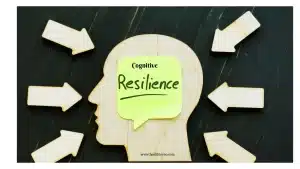Embarking on the journey to earn an MD degree is undoubtedly one of the most challenging and rewarding paths in life. The rigorous demands of medical school often lead students to neglect their own well-being, but a growing trend is emerging – medical students embracing a healthy lifestyle as an integral part of their MD degree pursuit. In this article, we explore the unique challenges faced by medical students and delve into the innovative ways they are prioritizing their health while navigating the demanding world of medicine.
The Grind of Medical School
Medical school is synonymous with long hours of study, sleepless nights, and the perpetual stress of exams and clinical rotations. With a curriculum that demands both theoretical knowledge and practical application, students find themselves absorbed in a constant struggle to balance academic demands with personal well-being. However, a new wave of awareness is sweeping through medical institutions, emphasizing the importance of a holistic approach to medical education.
Mindful Nutrition

Active Study Breaks
The sedentary nature of studying for an MD degree can take a toll on physical health. In response, students are incorporating exercise into their daily routines. Whether it’s a quick jog, a yoga session, or a visit to the gym, medical students are realizing that regular physical activity not only improves cardiovascular health but also enhances concentration and reduces stress.
Moreover, there’s a trend toward diverse activities during breaks. Some students opt for group fitness classes, intramural sports, or outdoor adventures like hiking. This mix not only delivers physical perks but also builds social connections, fostering a sense of camaraderie. The shift towards varied movement and interaction during breaks is making study sessions more enjoyable. As students embrace these active breaks, they find benefits extending beyond the physical, contributing to an overall enhancement of well-being. This shift reflects a broader understanding of how movement, mental clarity, and tackling the challenges of medical school are all interconnected.
Mental Health Matters
The demanding nature of medical education can contribute to burnout and mental health challenges. Acknowledging this, medical schools are increasingly providing resources for mental health support, and students are taking the initiative to prioritize their well-being. Meditation, mindfulness practices, and seeking professional counseling are becoming common strategies for maintaining mental health throughout the MD degree journey.
Building Support Networks
MD degree students are recognizing the importance of a strong support system. Study groups, mentorship programs, and peer-to-peer support networks are on the rise. These connections not only contribute to academic success but also serve as crucial pillars of emotional support, fostering a sense of community among medical students.
This sense of community extends beyond academic settings, with students organizing wellness events, stress-relief activities, and shared leisure pursuits. The emphasis on holistic support networks underscores a commitment to addressing not only the academic challenges but also the well-being of each individual. As a result, medical students are finding comfort and strength in a supportive community that recognizes the multifaceted nature of their journey.
Balancing Professionalism and Self-Care
As future healthcare professionals, medical students understand the significance of leading by example. They are navigating the delicate balance between the demanding professionalism required in the medical field and the imperative of self-care. By prioritizing their own health, they hope to inspire a culture of well-being that extends beyond the classroom and into their future medical practices.
The pursuit of an MD degree is undoubtedly challenging, but an increasing number of medical students are embracing a healthy lifestyle as an essential component of their academic journey. From mindful nutrition to active study breaks and prioritizing mental health, these students are setting a new standard for well-being in the medical profession. As they navigate the demanding world of medicine, they are proving that a healthy lifestyle and an MD degree can indeed go hand in hand.
Conclusion
In conclusion, this paradigm shift towards holistic well-being within the medical education landscape reflects a deeper understanding of the interconnectedness between physical health, mental well-being, and academic success. As medical students continue to advocate for a more balanced approach, the medical profession stands to benefit from practitioners who not only excel in their knowledge and skills but also exemplify a commitment to a healthy and sustainable lifestyle. This transformative approach could potentially redefine the narrative surrounding medical education, creating a culture where the scalpel and the salad bowl coexist harmoniously.

Leila Mcneil
Disclosure – This is an external post. The views expressed are of the sponsor/author/third party and not of Healthieyoo’s editorial team. We disclaim any and all liability to any party, person, company, or product for any direct, indirect, implied, punitive, special, incidental, or consequential damages arising either directly or indirectly due to the use of content published in this article. The publishers of this website take no responsibility for any health issues, personal injury, death, disability, or any other harm due to the content on our website or any advice or opinion expressed on our website. Please consult your healthcare professional before making any decision related to your health. Please also read our medical disclaimer”.
Related Posts

A CNA’s Guide to Maintaining a Balanced Diet for Optimal Health


The Evolution of Nursing Education: Embracing the Online MSN-FNP Program


Cognitive Resilience: Unleashing the Power of Brain Training Therapy


